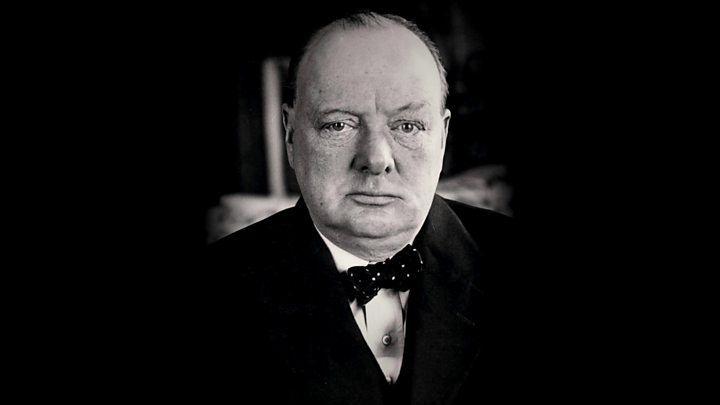
Image copyright
PA Media
A statue of Churchill in Parliament Square was boarded up ahead of a Black Lives Matter protest on Friday
A statue of Winston Churchill may have to be put in a museum to protect it if demonstrations continue, his granddaughter has said.
Emma Soames told the BBC the war-time prime minister was a “complex man” but he was considered a hero by millions.
She said she was “shocked” to see the monument in London’s Parliament Square boarded up, although she understood why it was necessary to do so.
It came after protesters daubed “was a racist” on the statue last weekend.
Ms Soames said it was “extraordinarily sad that my grandfather, who was such a unifying figure in this country, appears to have become a sort of icon through being controversial.”
“We’ve come to this place where history is viewed only entirely through the prism of the present,” she told BBC Radio 4’s Today programme.
Ms Soames acknowledged her grandfather had often held views which “particularly now are regarded as unacceptable but weren’t necessarily then”.
However she added: “He was a powerful, complex man, with infinitely more good than bad in the ledger of his life.”
She said if people were “so infuriated” by seeing the statue it may be “safer” in a museum.
“But I think Parliament Square would be a poorer place without him,” she added.
Image copyright
PA Media
Last weekend the statue of Winston Churchill was spray-painted with the words “was a racist”
However, author Shrabani Basu, who has written books about the British Empire, said there were “two sides of Churchill” and “we need to know his darkest hour as well as his finest hour”.
She argued that in India, Churchill is not seen as a hero, citing his role in the 1943 Bengal famine, during which at least three million people are believed to have died.
While Ms Basu said she did not want to see the statue removed from Parliament Square, she said people should be taught “the whole story” about the war-time figure.
On Friday, Prime Minister Boris Johnson branded the boarding up of the statue to protect it from potential vandalism as “absurd and shameful”.
Mr Johnson said the former prime minister had expressed opinions which were “unacceptable to us today” but remained a hero for saving the country from “fascist and racist tyranny”.
“We cannot try to edit or censor our past,” he wrote of moves to remove tributes to historical figures. “We cannot pretend to have a different history.”
Why does Churchill divide opinion?

Media playback is unsupported on your device
Winston Churchill, who lived between 30 November 1874 and 24 January 1965, is often named among Britain’s greatest-ever people but for some he remains an intensely controversial figure.
Despite his leading the country through the darkest hours of World War Two and being prime minister twice, critics point to his comments on race and some of his actions during both world wars.
Churchill told the Palestine Royal Commission that he did not admit wrong had been done to Native Americans or aboriginal Australians as “a stronger race, a higher-grade race, a more worldly wise race to put it that way, has come in and taken their place”.
His supporters argue that he was by no means the only person to hold these sorts of views during the period.
He also advocated the use of chemical weapons, “I am strongly in favour of using poisoned gas against uncivilised tribes,” he wrote in a memo.
Another criticism is for his part in the Bengal famine in India in 1943, during which at least three million people are believed to have died after Allied forces halted the movement of food in the region – including through British-run India – following the Japanese occupation of Burma.
The statue in London’s Parliament Square was boxed up ahead of a Black Lives Matter protest in Westminster on Friday evening.
A demonstration planned for Saturday was brought forward by a day because of fears there could be violent clashes with far-right groups.
The Met Police have placed restrictions on several groups intending to protest on Saturday, including requiring demonstrations to end at 17:00 BST.
Other monuments have been removed ahead of separate protests planned over the weekend, while the Cenotaph war memorial, in nearby Whitehall, has also been covered.
Mayor of London Sadiq Khan said other “key statues”, including one of Nelson Mandela, would be protected, saying there was a risk statues could become a “flashpoint for violence”.
It comes after the statue of slave trader Edward Colston was thrown into the harbour in Bristol during a Black Lives Matter protest on Sunday.
Demonstrations have been taking place across the world following the death in police custody of African American George Floyd in Minneapolis last month.





More Stories
Healing Streams Live Healing Services with Pastor Chris: Miracles Await this March 14th – 16th, 2025!
Essential Care for Hermann’s Tortoise: A Guide to Thriving Pets
Nail Decisions: Which is Better for You, Acrylic or Gel?